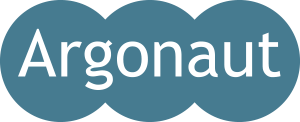United Kingdom
- Home

- United Kingdom

- United Kingdom
Country Facts
- Capital City: London (national capitals include Edinburgh, Cardiff and Belfast)
- Official language: English
- Official name: United Kingdom of Great Britain and Northern Ireland
- Population: 65 million
- Currency: Pound Sterling = 100 pence
- International dialling code: +44
- Web domain: .co.uk
- Religion: Christianity (Protestant, Catholic), Islam
- Languages and foreigners: British people learn foreign languages at school but most people use exclusively English in adult life. There are many small but significant multi-lingual communities in the country, in Wales especially, and many in London and other cities. Almost everyone will expect you to speak English, whether in the UK or your own country., Most children study a foreign language (often French or Spanish) at school but few master it and most people native to the UK only speak English. The large community of EU and non-EU migrants are often bi-lingual (or tri-lingual). In Scotland, Wales and Ireland there are small numbers that speak the Gaelic. For those visiting the UK, there might also be some time needed to get used to the local dialect, especially during phone conversations or with people in rural communities.
- Landmarks and places of cultural significance: White cliffs of Dover (symbol of homecoming and difference from overseas, or alternatively island mentality and isolationism). In England, pre-historic Stonehenge, the Middle Age Canterbury Cathedral and the Tower of London. In Scotland, Edinburgh Castle and Old Town, Skara Brae (Orkney Islands) and Stirling Caste. In Wales, Snowdon (highest mountain in England or Wales), Caernafon Castle and Cardiff Arms Park (rugby stadium). In Northern Ireland Giants Causeway, Titantic Belfast, Shankhill Road (one of the focal points of the Troubles) and any filming location for Game of Thrones. Also the Lake District for poetry and the Scottish Highlands for heroic Scottish tales.
- Biggest holidays and celebrations: Christmas (December 25) is by far the most important holiday period in the British Isles. Most organisations completely shut down between Christmas Day and New Year (called Hogmanay in Scotland). Easter is a religious period and four-day weekend, with shops full of enormous chocolate eggs. St. Patrick's Day (March 17) is important in Northern Ireland and to the Irish population in Great Britain. Burn's night (January 25) & St. Andrew's day (November 30) are key dates in Scotland, while St David's day is important in Wales but not a public holiday. Remembrance Sunday (closest to 11th November) has millions wearing red poppies while charity fund-raising Red Nose Day often gets people involved in events in workplaces in springtime.
- Celebrities you should know: The Queen and the Royal Family (heir to the throne Prince Charles and his son Prince William & wife the Duchess of Cambridge Kate Middleton). Posh & Becks (David Beckham, footballer & fashion icon and his wife Victoria, fashion designer also known as pop star Posh Spice). Adele (singer). Sir David Attenborough (documentary maker) is one of a generation of "national treasures". Mr Bean (comic character played by Rowan Atkinson).
- Historical figures: Admiral Nelson (navy commander). Winston Churchill (war leader). Margaret Thatcher (Britain's first female Prime minister). Britain is the home of many famous writers and poets, William Shakespeare, Emily Bronte, Jane Austen, Robert Burns and Charles Dickens, Dylan Thomas. Best-known scientists include: Charles Darwin, Isaac Newton, Alexander Fleming, Francis Crick, and Alexander Graham Bell.
- Food taboos and favourites: The Sunday roast is very British (large roast of mutton, dumplings called Yorkshire pudding, roasted potatoes and root vegetables. Fried breakfast. Mushy peas. In Scotland, the most famous local food is haggis, a savoury dish made from sheep intestines and other organs, traditionally encased in a sheep's stomach. Britain is known for its 'Chippies', small take away bistros where you get fish and chips (french fries). Indian dishes are very popular for take away too. Marmite is a vegetable spread for bread or crumpets, which disgusts some people and delights others. British people in general will not eat horse meat.
- Key words and national identity: Chuffed (modest and grateful for success). A "do" (party, for example a leaving do for a colleague). Grub (basic food, such as pub grub). Muddle, bodge, dodgy, fudge (unreliable or imperfect solutions but not completely unacceptable). Faff (busy, minor chaotic activity without many positive results). Waffle (a lot of talking without knowledge or substance). Gobsmacked (amazed). Whinge (complain, annoyingly). Naff (uncool). Sorry (what you say in any situation). Posh, stuck-up, la-di-da (negative way of describing higher classes and superior attitudes). Sod's law (like Murphy's Law: if something can go wrong at the worst time, it will). Dog and Bone (or any rhyming slang) is a London habit of hiding true meanings originally for excluding foreigners, now adopted by everyone. Drizzle (light raindrops) and many weather words, such as the Scottish 'dreich' (grey, rainy and miserable) or 'haar' (mist coming from the sea on the East Coast of Scotland).
- Music genres: In the UK you will probably find a music scene for any taste. The UK is known as a breeding ground for pop stars and new musical genres.
- Sports: Football, Rugby, Cricket, Athletics, Sailing, Rowing, Crown-Green Bowling, Snooker, Golf. Tennis is popular but elite success is rare.
- Symbols of identity: Patron saints (St George for England, St Andrew for Scotland, St Patrick for Northern Ireland and St David for Wales) and their coats of arms (a lion for England and Scotland, a Dragon for Wales and a Stag for Northern Ireland). National flowers (a rose for England, a thistle for Scotland, a daffodil for Wales and a shamrock for Northern Ireland). Also Rolls Royce, Marmite, Mr Bean and Vindaloo.

